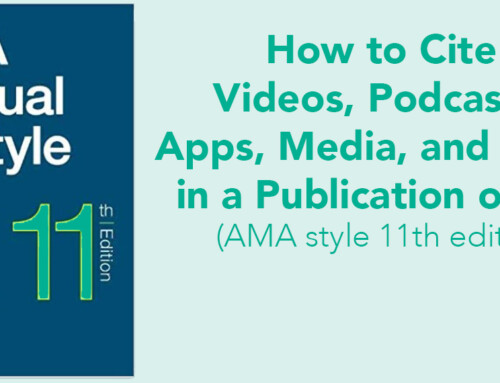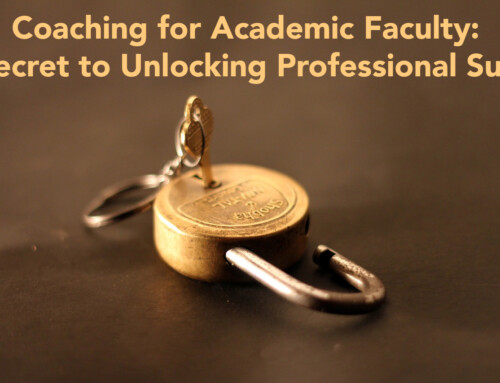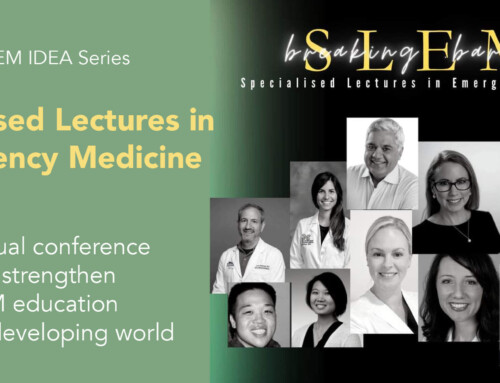 So you are about to start your first year as an Emergency Medicine (EM) resident in a few short weeks. Or perhaps you are entering a new, more senior resident role in your department. You are probably unsure of what to expect, a bit anxious, but definitely excited to start. As part of a multi-institutional initiative launched by the ALiEM Chief Resident Incubator, chief residents from across the country pooled together what they wanted residents to know to become an amazing resident. After compiling the responses, we came up with these “Top 10 Secrets to Success as a EM Resident”.
So you are about to start your first year as an Emergency Medicine (EM) resident in a few short weeks. Or perhaps you are entering a new, more senior resident role in your department. You are probably unsure of what to expect, a bit anxious, but definitely excited to start. As part of a multi-institutional initiative launched by the ALiEM Chief Resident Incubator, chief residents from across the country pooled together what they wanted residents to know to become an amazing resident. After compiling the responses, we came up with these “Top 10 Secrets to Success as a EM Resident”.
1. Do not forget who you were before residency
It is very difficult to not be consumed by residency. We joined Emergency Medicine for a variety of reasons, but we really enjoy our lives outside of medicine. We are typically very well-rounded, active and enthusiastic people. As we move through residency, our habits and routines evolve around our unusual schedules and lives. Many of us have had difficult rotations in which it seems that we do nothing except “eat, sleep, work, repeat”. Take a moment during those tough times during residency to reflect on who you truly are and do not forget it. It’s always important to remember who you are. Don’t let residency change how you contribute to your friendships/relationships, activities and endeavors that you are passionate about or what you have planned for your life. We will all emerge at the end of the residency tunnel as strong and competent physicians; make sure that physician is the true you.
2. Do something for yourself everyday
We all know how difficult it can be during residency to find a minute for ourselves. Many of us tend to first sacrifice time for our favorites activities, hobbies, or routines that we once had prior to residency. Find what brings you back to your center (family, friends, exercise, food, better sleep, music, art, etc). Don’t give up on those moments that you love; it may be the best thing to get you through the day. This can help you refocus your efforts on and off shift; you will likely feel faster, sharper and more productive. More caffeine is not always the answer! Most people will agree that they have become better and more productive residents when they have actually taken time to step away from the work.
3. Learn one thing from each patient
Strive to learn at least one thing from every patient you treat. The further you go in residency the harder this can be to accomplish, but it never looses its importance. When you start as a brand new intern, you learn many things from each patient without even trying or even realizing. At some point however, you will notice that a lot of what you are do becomes automatic. This is where you have to make a conscious decision to avoid complacency. Challenge yourself, your fellow residents, and even your attendings. Play the game of hypotheticals to keep yourself fresh with each patient you see. Literally anyone with any complaint can walk into any emergency department. It’s impossible to see everything in a single residency (or career for that matter) but you can, and should use your time in training to prepare yourself for as many scenarios as possible.
4. Don’t get lost in FOAM… Remember the core content
ED ECMO, REBOA, push-dose pressors! Interested? We all are. But for every crashing patient that can benefit from your reading about the above topics, there is another presenting with right leg pain, a rash, or vaginal bleeding. Recognize that FOAM does not cover everything. It is still important to focus on core content, even if that means… reading a textbook. You must first develop a foundation from which advanced topics can be added, as well as learn about those less-popular topics. Social media can certainly be an educational aid, but it cannot tell you everything you need to know to be a well rounded emergency physician (yet).
5. Do not compare yourself to others
Do not, we repeat, DO NOT compare yourself to your colleagues. Especially starting out as an intern, you may see your colleagues are at different levels. Do not get discouraged – it does not matter where you are at the start, it matters where you finish – and residency is designed so that we all finish at a certain level of proficiency and expertise. Some residents may have a few more procedures, or have seen a few more patients than you, but these gaps close significantly over time. You will get your procedures. You will improve your speed. You will get where you need to be to be a successful EM physician. Challenge yourself to be the best emergency physician you can be, not to be better than your co-resident.
6. Find a niche
Emergency Medicine a broad specialty. For many of us, this was one of the perks of the specialty that drew us in. However starting out, there is so much you don’t know. Having that one topic that you learn in greater depth can be a great confidence booster, especially when you become the “go to person” for your topic amongst your co-residents – and sometimes even faculty! Find a niche and own it. Whether it’s a broader topic like ultrasound or EMS, or a specific diagnosis like central cord or myocarditis, make it yours. When you take the time to grow a passion, it will pay you back. Going forward, this can help define your career goals, especially if you’re bound for academics. Selling yourself and your brand becomes important. It’s marketing 101 and is a great way to build a strong foundation.
7. Be organized
Half the battle of residency is learning how to balance life. There are many programs and ideology on how to become more productive. Find the version that best suites your style and stick with it. Your once bulky to-do-list will slowly dwindle. Your mind and soul will be freed of always worrying if you are forgetting something. And your precious and glorious free time will be so much more enjoyable because you will be living in the moment. Taking steps towards efficiency and being more productive, especially early in your career will surely help with balancing your life and becoming more successful during residency and all throughout your career.
8. Be confident, but not overconfident
This can be a very fine line that is all too easy to cross. As a new resident it is easy to feel completely overwhelmed, but as your knowledge and abilities grow, so does your confidence. Confidence comes in many forms critical to success in medicine, particularly EM. First, be confident in yourself and who you are. Second, be confident in what you know and what you can do; but just as important, what you do not know and are not capable of. Understanding your limits is as valuable as knowing your capabilities. This allows you to recognize when you need to ask for help. Don’t be afraid to say “I don’t know”, embrace it. This is where you have the best opportunity to direct your daily learning, something that will never stop. Third, be confident in your team. In some ways, this can be the hardest, it is easy to lose perspective and feel that you are the only person capable to handling a certain patient, procedure, etc. In EM, we are surrounded by amazing people. Use them — nurses, residents, and attendings– as the resources they are.
9. It all comes down to respect
In medicine, and in EM in particular, we are co-dependent. Our departments are only as strong as we are as a team: one that is loud, proud, and as diverse as they come. Our nurses, techs, mid-level providers, respiratory therapists, chaplains, security officers, police officers, EMS providers, radiology staff, lab, housekeeping – the list goes on – all contribute to our success as physicians. When you respect your team; when you learn their names and their stories; and when you acknowledge the work and training it took to get them where they are, you can harness that power. You can use their expertise to help you and, more importantly, your patients. The same goes for your medical and surgical colleagues. When you respect each other, you learn more.
10. Listen, do not speak
An Annals of Internal Medicine article from 1984, showed the average time to physician interrupting a patient was 18 seconds. A more recent study from 2001 showed that a cohort of residents only let patients speak for an average of 12 seconds prior to interrupting – it seems we are getting worse! EM is full of extroverted, energetic, and talkative people. It’s a wonderful environment to work in. As you start intern year, I would implore you to take a step back and listen.
Listen to the nurse, who wants you to come to bedside because their patient is not looking well; listen to the medics who bring patients into your department, as they have seen where the patient came from, and what they looked like prior to pre-hospital interventions; listen to your attending, who recommends you read about a certain topic after shift because they know it would benefit you clinically; listen to the janitor, who has been working in the hospital for 30 years when they tell you there is someone in the hallway who is acting strange and someone should take a look at them (true story – caught a head bleed); listen to your body when it tells you it is time to exercise to clear your mind; lastly, listen to your patients – they are trying to tell you what is wrong with them and will give you the answer if you just allow them to.
Bonus Tip: Make your residency class your family
Family is a funny word. It means more than just the DNA that people share, and new families can be created out of nowhere. Inordinate amount of hours in the hospital, tragic and death defying patients, failures and successes and off days spent doing anything that isn’t medicine all can contribute to building a new residency family. They are the glue that gets you through residency. They are the people you go to when there is exciting news to share, or when someone is struggling and needs advice. The residents in your program all come from different areas and are at different stages of life, but no matter what, you will always have YOUR class, YOUR residency.
Acknowledgements for other chief residents who helped contribute their ideas:
- Dr. Dylan Carney
- Dr. Ted Fan
- Dr. Jonah Gunalda
- Dr. Travis Manasco
- Dr. Chris San Miguel
- Dr. Morganne Phillips
- Dr. Christian Rose
- Dr. Bjorn Watsjold
Top image: ©CanStockPhoto









